Have you ever curled up on the couch with your cat, only to watch them settle down and promptly turn their back toward you? For some, it might sting a little—after all, we love our pets and crave their affection. But what if this seemingly aloof gesture actually hides a deeper meaning? If you’ve ever wondered why your cat chooses to sleep facing away from you, you’re not alone. This mysterious feline behavior holds more layers than most people realize, and the answers might just surprise you. Let’s unravel the secrets behind your cat’s sleeping habits and discover what they’re really trying to tell you.
Trust in the Animal Kingdom

When your cat sleeps with its back to you, it’s not a sign of disrespect or distance. In the animal world, this is a powerful display of trust. By exposing their back, cats are showing they don’t see you as a threat. It’s like turning off your phone’s security system when you’re home—you only do it when you feel completely safe. This behavior often goes unnoticed, but it’s actually an unspoken compliment from your furry companion. Cats are natural survivors and rarely let their guard down, so consider yourself lucky if your cat feels comfortable enough to sleep like this around you. Their silent message? “I trust you to watch my back.”
A Sign of Comfort and Security

Cats crave cozy, secure environments. When they sleep facing away, it’s often because they feel totally at ease in your presence. Think of it as their way of saying, “I’m at home here.” If your cat stretches out, exposing their belly while facing away, that’s an even bigger badge of comfort. They wouldn’t dare do this if they felt threatened or uneasy. Sometimes, you’ll notice your cat making biscuits or purring before dozing off—these are all signs that your home is their safe haven. The next time your cat turns their back to you, know that you’ve created a space where they can fully relax.
Keeping Watch Over Their Territory

Cats are natural-born sentinels. Even in sleep, they’re thinking about their environment. Facing away from you can be a strategic move, letting them keep an eye (or an ear) out for any changes in the room. It’s like they’re the neighborhood watch, scanning for anything unusual. Your cat might choose to face an open door, window, or a hallway—anywhere they think potential “intruders” could appear. By sleeping this way, they’re protecting both themselves and you. It’s their subtle way of saying, “Don’t worry, I’ve got this side covered.”
Bonding in Their Own Way

Every cat has a unique personality, and not all show affection in the same way. Some cats are lap warmers, while others prefer to be near you but not on you. Sleeping with their back turned can be a form of feline bonding. It’s their way of saying, “We’re together, but I need my space.” Think of it like sitting beside a friend on a park bench—not talking, just enjoying the moment. Cats are masters at quiet companionship, and this behavior is proof that they value your presence.
Communicating Through Body Language

Cats are experts at non-verbal communication. The direction they face while sleeping is often more meaningful than words. By turning away, they might be signaling that they’re relaxed, content, and not looking for interaction. Sometimes, it’s a gentle hint that they want a little alone time, without actually leaving the room. It’s their version of putting on headphones—close enough to feel your presence, but signaling a desire for peace and quiet. Reading these subtle cues helps deepen your connection with your feline friend.
Mimicking Wild Instincts
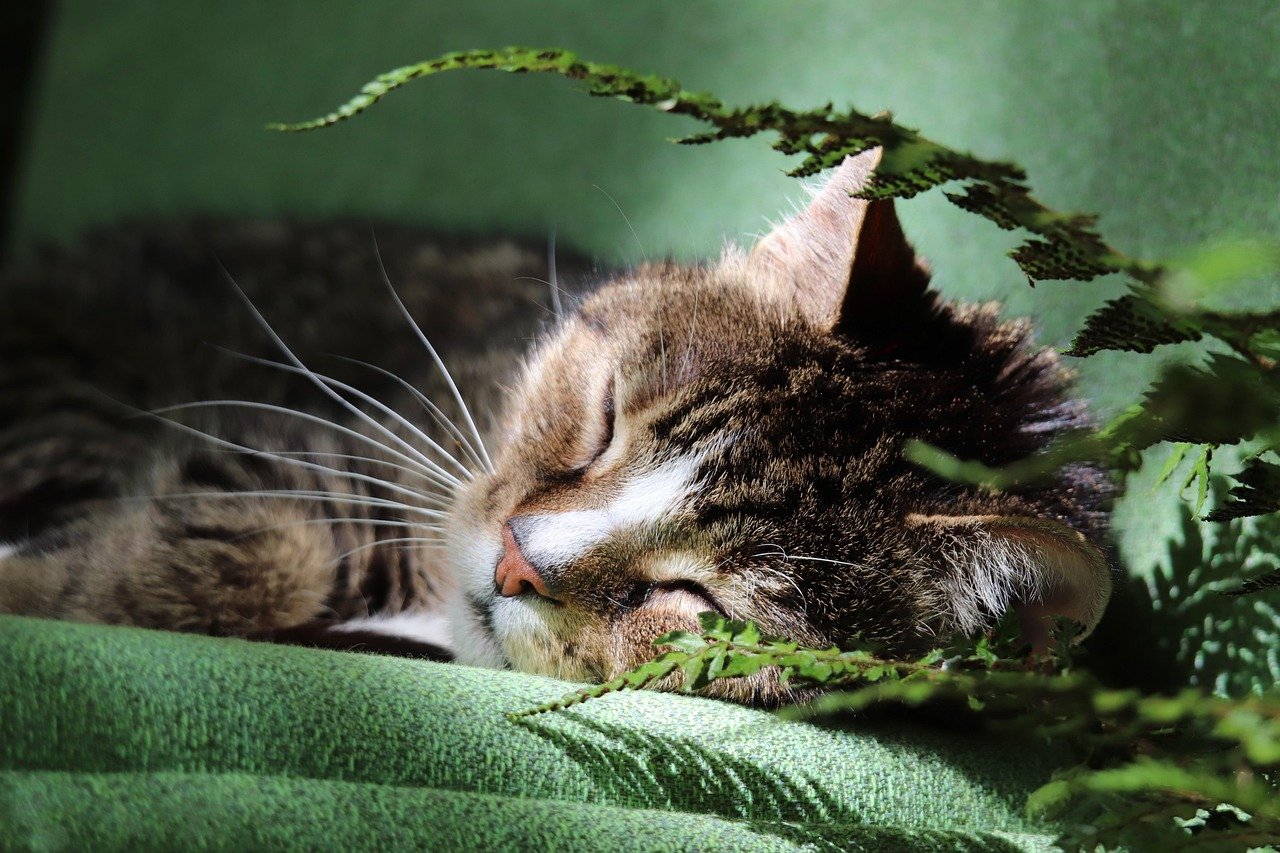
Even the most pampered housecat still carries the instincts of their wild ancestors. In the wild, cats often sleep facing away from their companions to keep watch for predators. This behavior is baked into their DNA, even if the biggest threat they face now is a vacuum cleaner. By sleeping with their back to you, your cat might be unconsciously tapping into these ancient survival strategies. It’s a reminder that, no matter how domesticated they seem, cats are still wild at heart.
Enjoying Independence

Cats are famously independent creatures. Sleeping facing away can be a declaration of this independence. It’s not that they don’t love you—they just value their autonomy. Some cats crave personal space, and by turning away, they’re creating a little bubble for themselves. This doesn’t mean they’re upset or distant. In fact, choosing to share a space with you, even if they’re not facing you, is a big deal in cat language. It’s their way of saying, “I want to be near you—on my terms.”
Temperature Preferences and Comfort

Cats are heat seekers, always on the hunt for the warmest, coziest spot. Sometimes, your cat might turn away simply because they’re adjusting their body to stay comfortable. Maybe the sun is shining on one side of the room, or there’s a draft they’re trying to avoid. Sleeping with their back to you might be the most comfortable angle for them at that moment. If you notice your cat shifting positions frequently, it could just be their way of getting the perfect nap.
Marking Their Territory
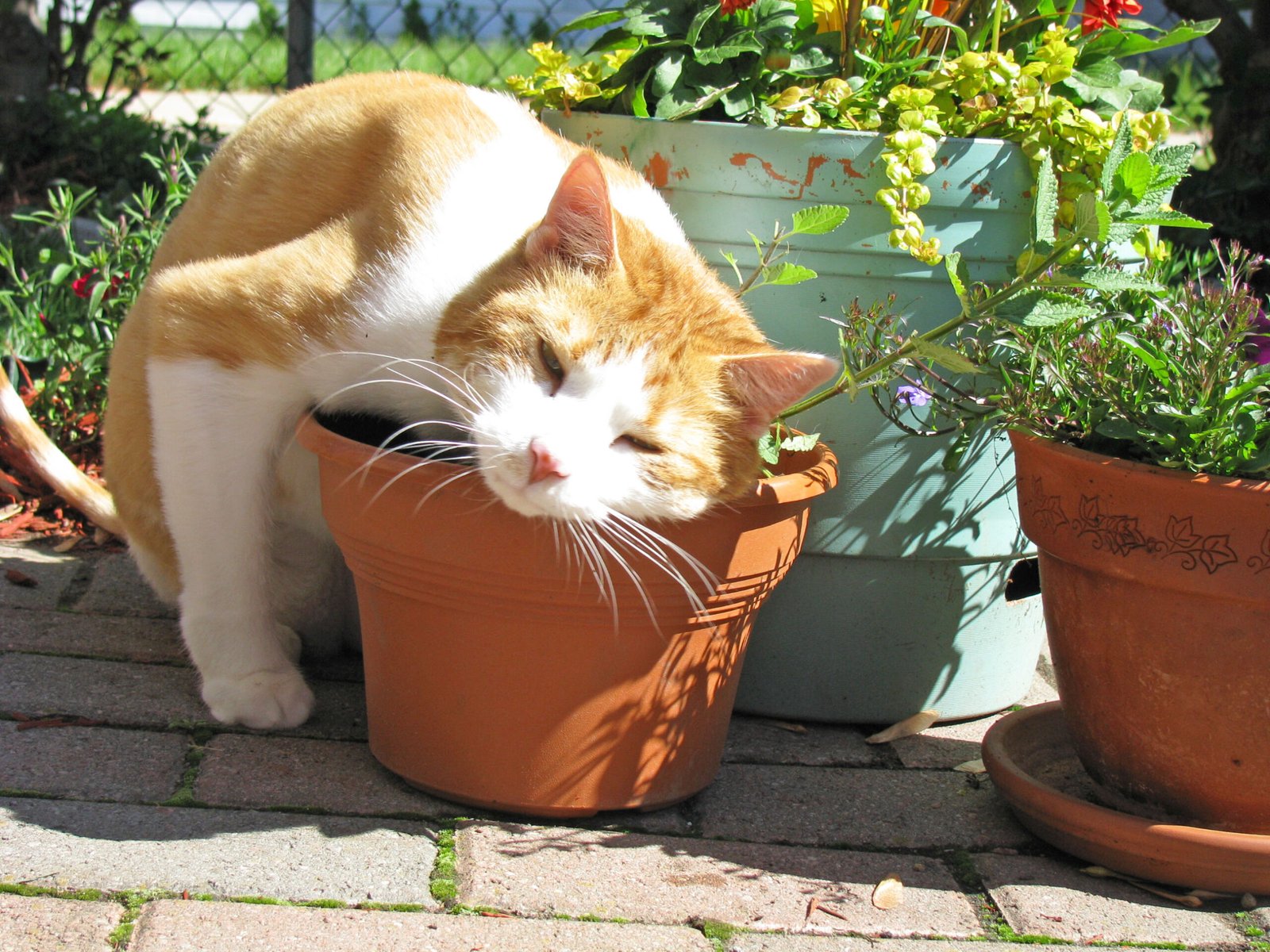
Did you know cats have scent glands on their cheeks and flanks? When they sleep facing away, they’re often rubbing their scent onto blankets, pillows, or even you. This is their way of claiming territory. It’s like leaving a sticky note that says, “This is mine.” Some cats even knead their bedding before settling in, spreading their scent even more. So, when your cat sleeps with their back to you, they might be marking you as part of their safe space.
Observing the Household

Cats are naturally curious, and they love to keep tabs on what’s happening around them. Sleeping facing away from you might give them a better vantage point to watch the rest of the house. Maybe they’re keeping an eye on another pet, or just monitoring the hallway for any signs of movement. It’s their way of staying informed, ready to jump into action if something interesting happens. This behavior shows just how attentive and clever our feline friends really are.
Avoiding Overstimulation
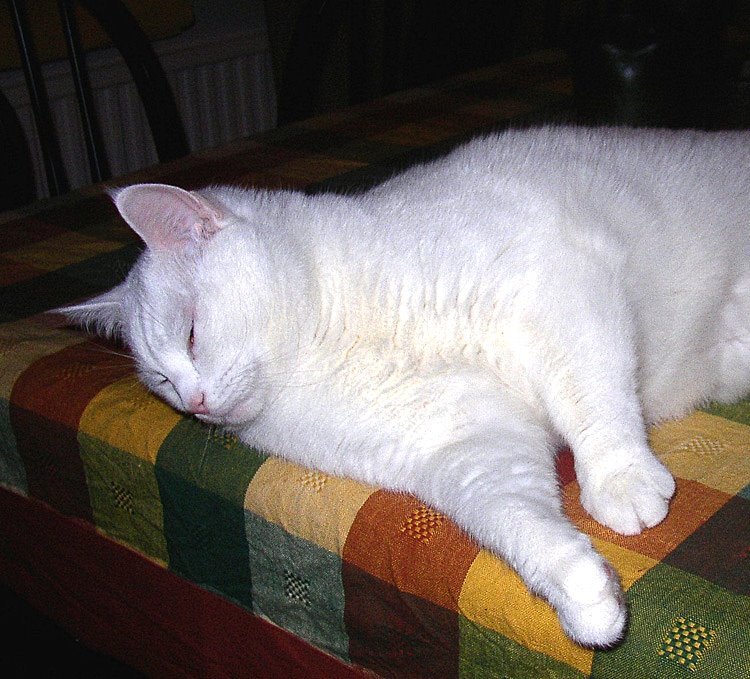
While some cats love cuddles, others can get easily overstimulated. If your cat turns away when sleeping, it could be their way of preventing too much interaction. Some cats have a lower tolerance for petting or handling, and sleeping with their back to you gives them a little buffer. It’s not a rejection—it’s just their way of managing their comfort levels. Respecting this boundary helps build trust and makes your cat feel understood.
Routine and Habit
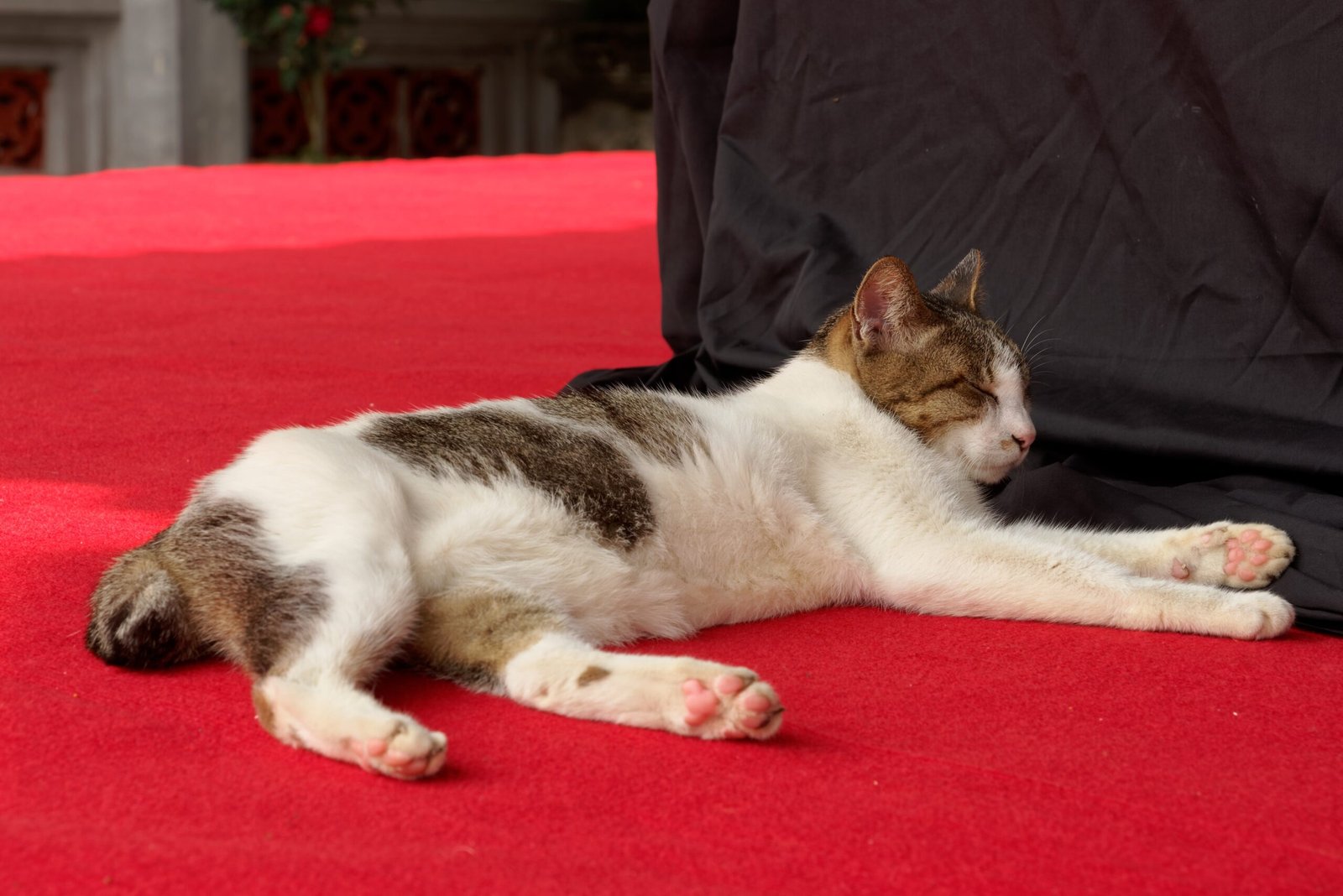
Cats are creatures of habit. If your cat always sleeps facing away, it might just be their routine. They may have found that this position helps them relax, nap, or keep tabs on their surroundings. Over time, this becomes their go-to sleeping style. Sometimes, cats will even switch positions throughout the night, cycling between facing you and facing away. It’s just part of their unique, quirky personalities.
Reacting to Noise and Distractions

A sudden noise, a flickering light, or the sound of footsteps in another room can make your cat more alert. Sleeping facing away from you might allow them to better track sounds and sights that catch their attention. This alertness helps them stay one step ahead of any potential surprises. If your household is busy or noisy, your cat might position themselves this way more often, just to stay in the loop.
Seeking Solitude Without Separation
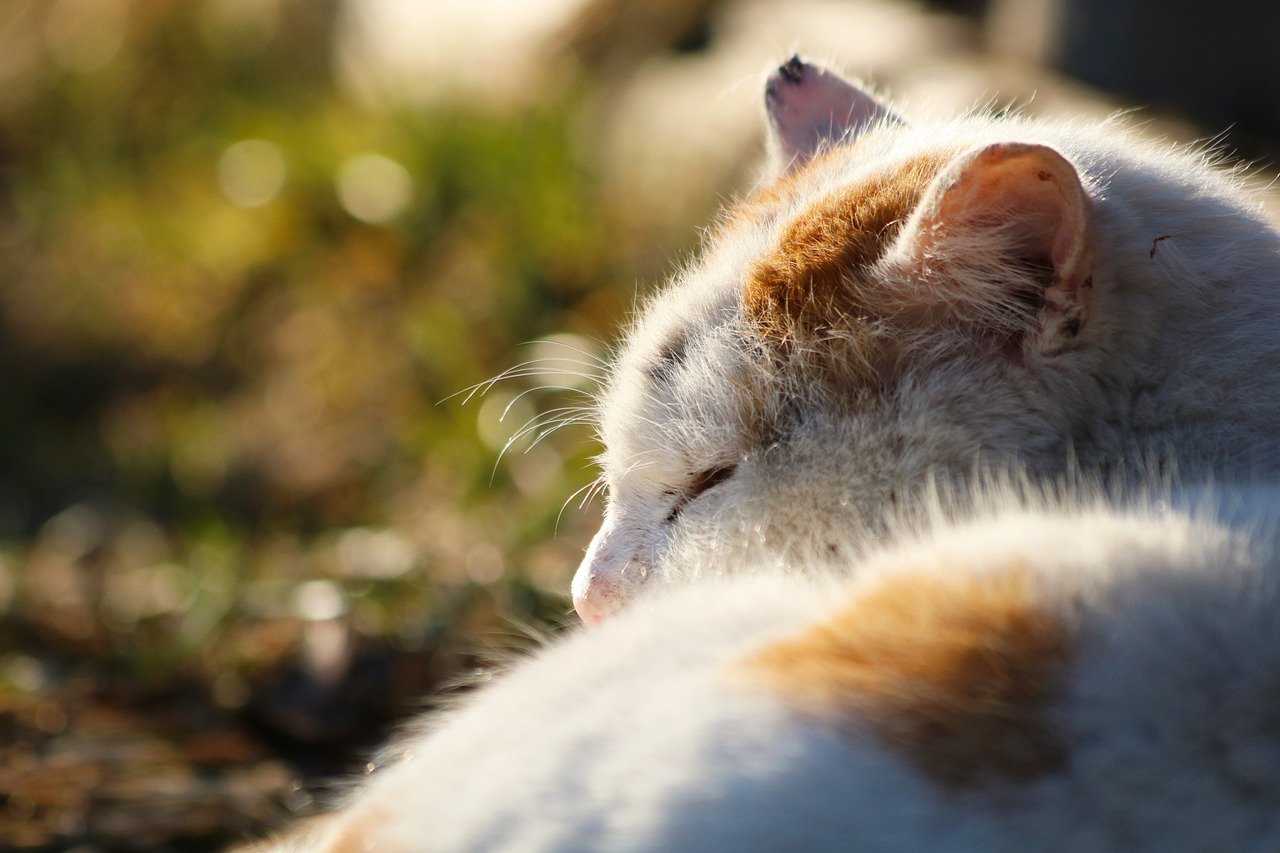
Sometimes, cats want alone time without actually leaving. Sleeping facing away allows them to enjoy solitude while still being close to you. It’s the feline equivalent of reading a book in the same room as a friend—together, but not engaged. This behavior is common in multi-pet households, where a cat might want a break from the action without feeling isolated. It’s a sweet, subtle way of saying, “I love being with you, just quietly.”
Health and Age Considerations
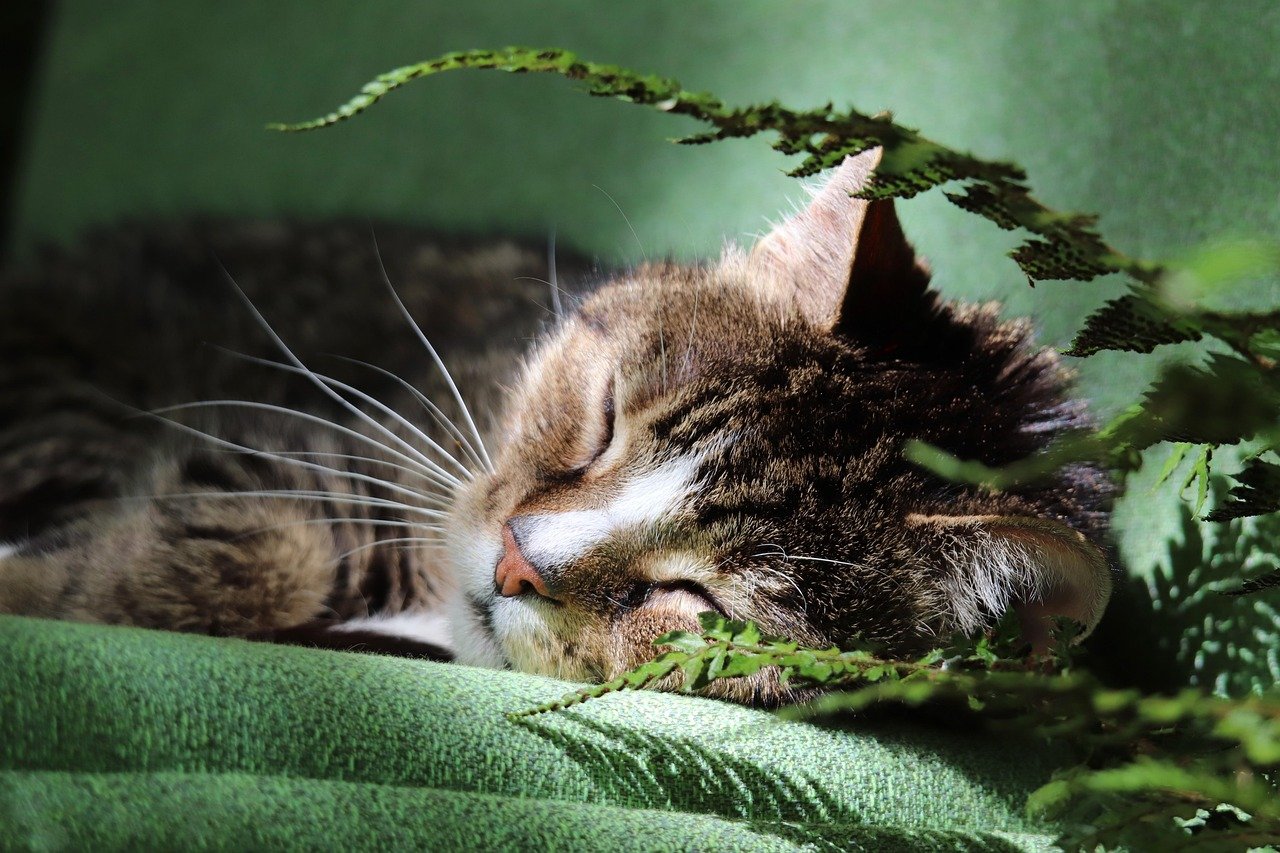
Older cats or those with health issues might sleep facing away simply because it’s more comfortable for them. Arthritis, joint pain, or other medical conditions can influence how a cat sleeps. If you notice your cat consistently choosing unusual positions, it might be worth a check-up at the vet. Sometimes, changes in sleeping habits can be the first sign that something’s up. Always keep an eye on your cat’s overall behavior, just in case.
Responding to Your Body Language
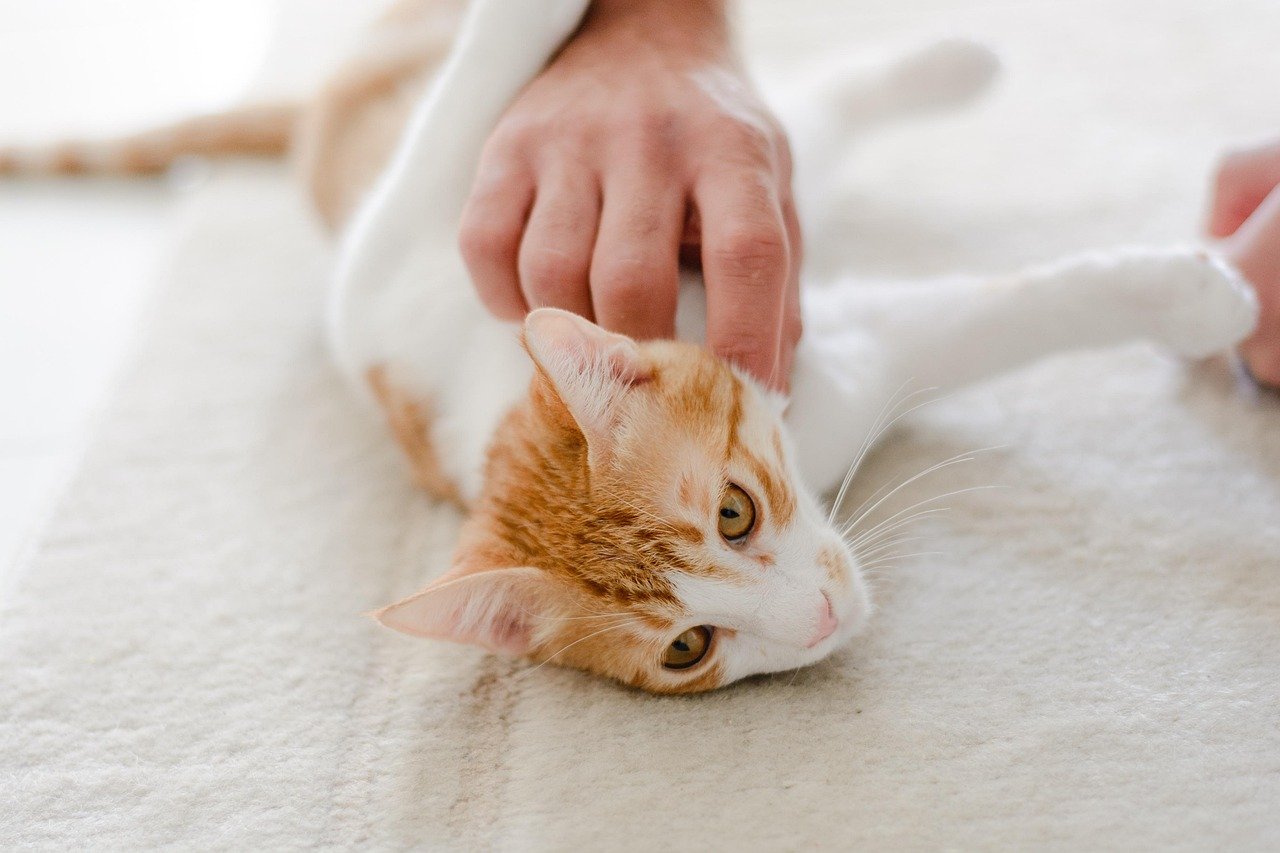
Cats are incredibly perceptive and often pick up on your mood and energy. If you’re busy, distracted, or not in the mood for cuddling, your cat might mirror that by facing away. On the flip side, if you’re feeling sad or tired, some cats will turn around and snuggle closer. It’s almost like they’re reading your mind. This back-and-forth dance of body language is one of the many ways cats connect with their humans.
Reflecting Their Mood
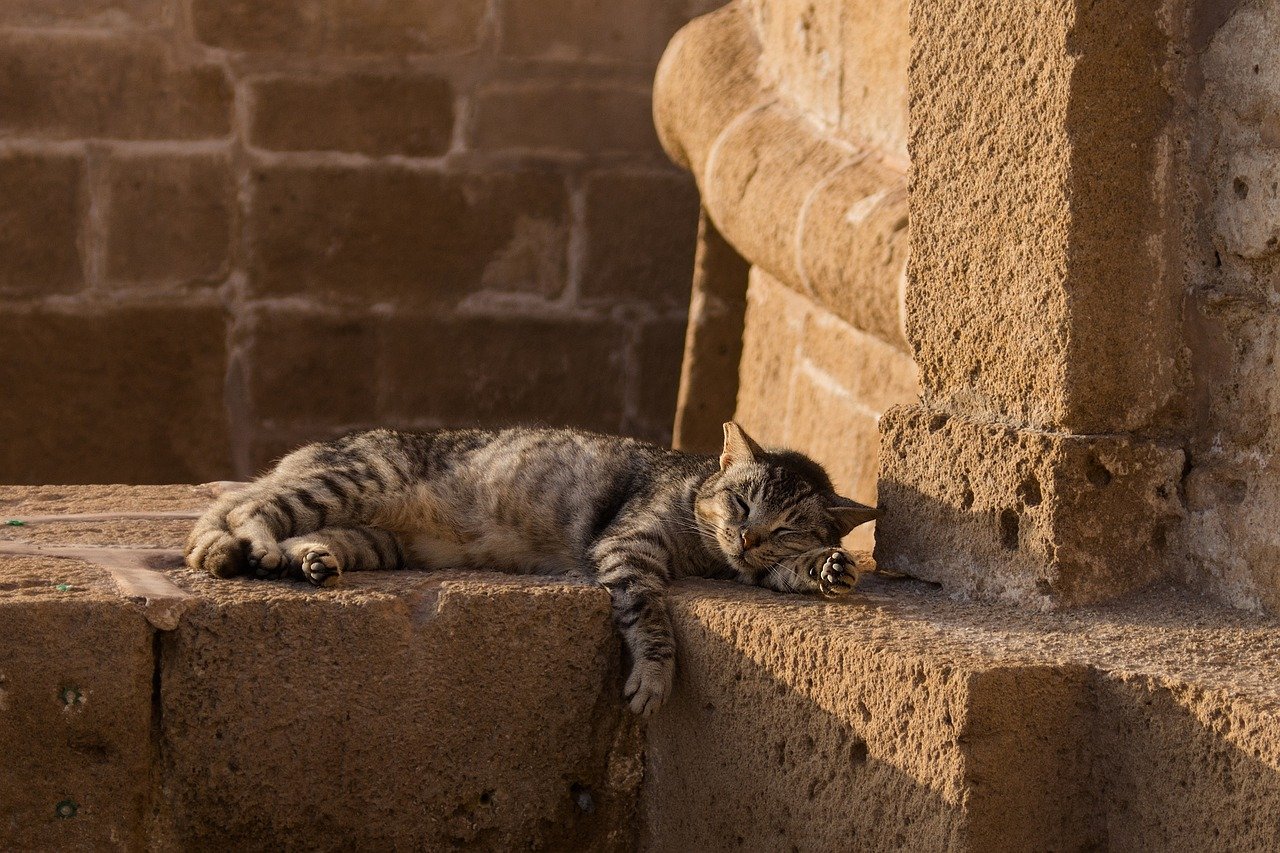
A cat’s sleeping position can reveal a lot about their mood. Facing away might signal contentment, relaxation, or even mild boredom. If your cat is purring or gently twitching their tail while facing away, they’re probably in a good mood. If they’re tense or alert, it might mean something in the environment has grabbed their attention. Learning to read these cues helps you understand what your cat is feeling, even when they’re not looking at you.
Demonstrating Affection in Subtle Ways
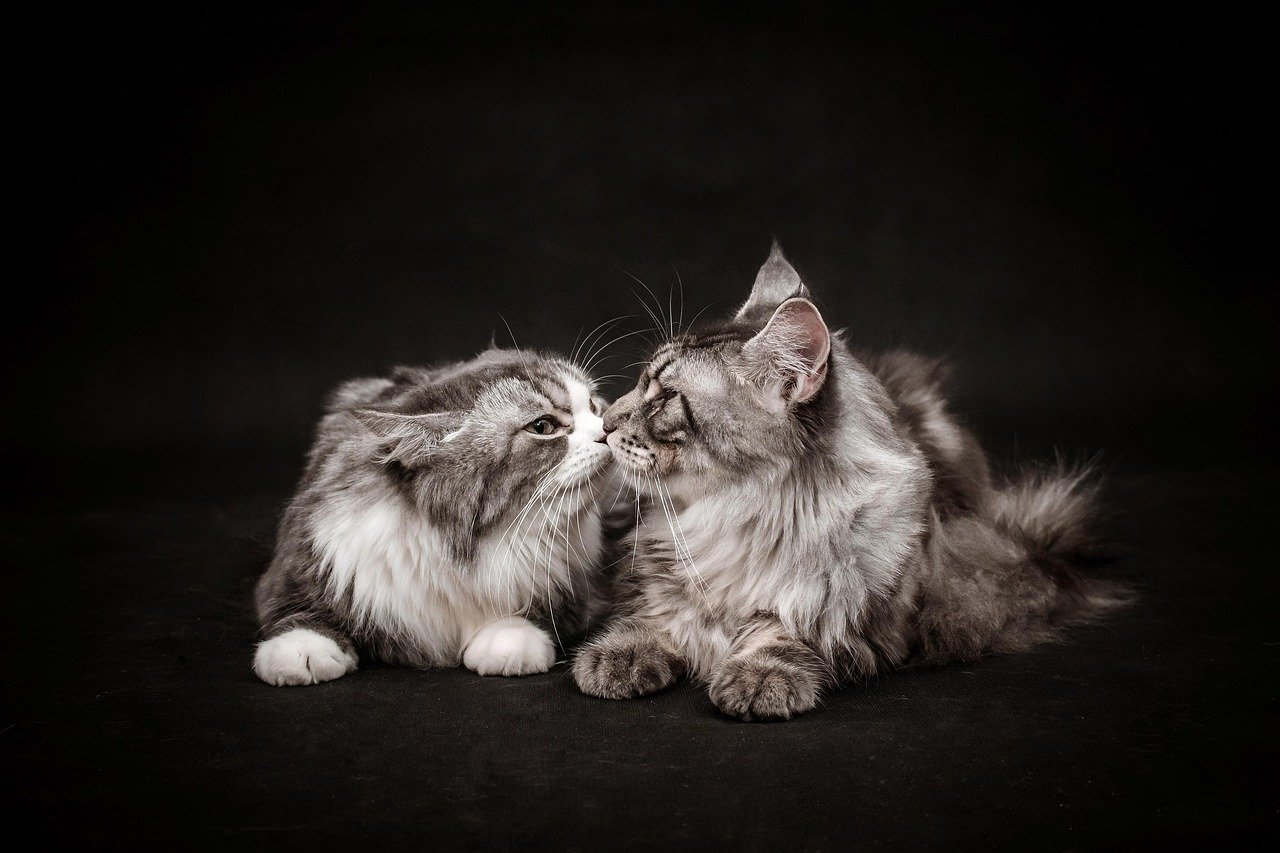
Not all cats show love by curling up in your lap. Some are more reserved, expressing affection in quiet, subtle ways. Sleeping near you, even with their back turned, is one of them. It’s a sign that they feel safest when you’re around. Some cats will even reach out a paw or gently brush against you while facing away—a soft, silent gesture of love. These small moments speak volumes in the language of cats.
Comparing Relationships with Other Pets

If you have more than one pet, you might notice your cat changes their sleeping position depending on who’s around. They may face away from you but toward another animal, or vice versa. This can reveal a lot about their relationships and social dynamics. Sometimes, cats feel more comfortable turning their back to those they trust most, while keeping a closer watch on newer or less familiar companions. It’s a fascinating glimpse into the social lives of our pets.
Adapting to Changes in the Home
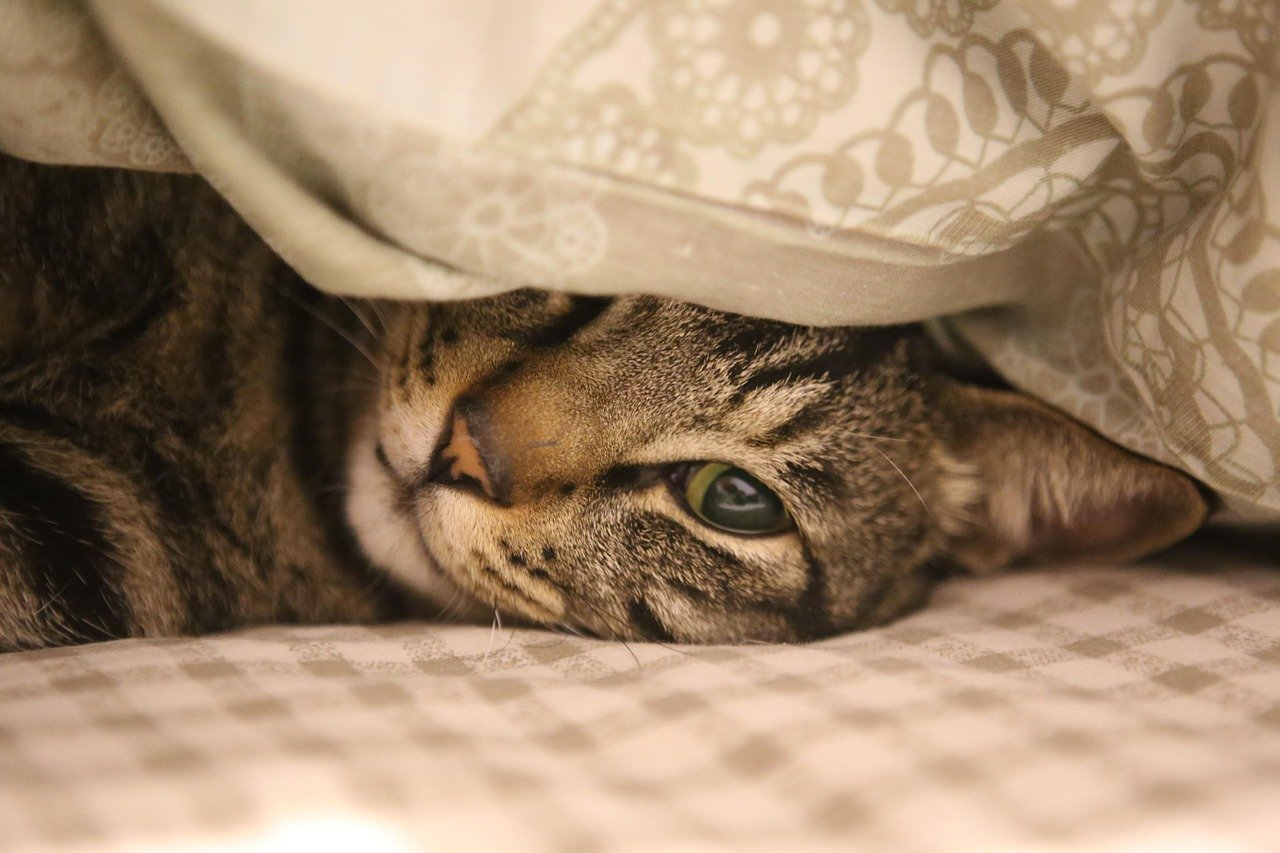
Major changes—like moving, new furniture, or a new family member—can influence your cat’s sleeping habits. Facing away may offer a sense of control or reassurance in a changing environment. It’s their way of adjusting and finding comfort in new routines. If your cat suddenly starts sleeping differently, consider if anything in the home has changed recently. A little patience and understanding can help them settle back in.
Making the Most of Shared Space

Cats are masters of finding the perfect spot. Sometimes, they sleep facing away simply because it gives them the best view, the comfiest pillow, or the warmest sunbeam. Sharing space with you, even if not face-to-face, is still a form of connection. It shows they want to be close, but also want to enjoy their favorite napping spot. This balance between closeness and comfort is what makes living with cats so fascinating and rewarding.
Hi, I’m Bola, a passionate writer and creative strategist with a knack for crafting compelling content that educates, inspires, and connects. Over the years, I’ve honed my skills across various writing fields, including content creation, copywriting, online course development, and video scriptwriting.
When I’m not at my desk, you’ll find me exploring new ideas, reading books, or brainstorming creative ways to solve challenges. I believe that words have the power to transform, and I’m here to help you leverage that power for success.
Thanks for stopping by, Keep coming to this website to checkout new articles form me. You’d always love it!






